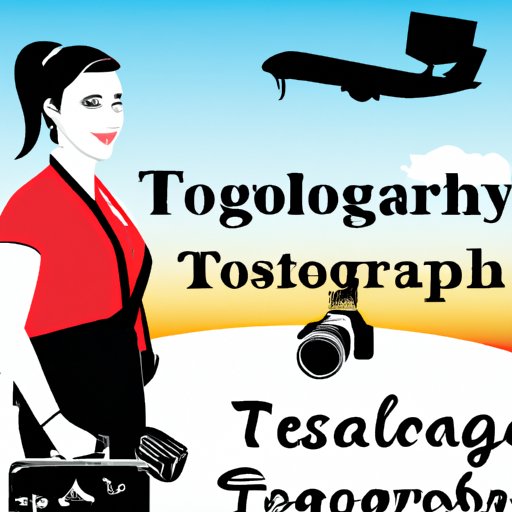Introduction
A travel sonographer is a medical professional who provides diagnostic imaging services on a contract basis. They may work in a variety of settings, including hospitals, clinics, and private practices. Becoming a travel sonographer requires both education and experience, but it can be a rewarding career path with many benefits.

Research the Requirements to Become a Travel Sonographer
Before you can become a travel sonographer, you must first meet certain requirements. These include:
Education
The most important requirement is an educational background in sonography. A degree or certificate program in diagnostic medical sonography or ultrasound technology is the best option. This type of program typically takes two years to complete and will prepare you for a career as a sonographer.
Licensing
In order to practice as a sonographer, you must obtain a license from your state’s licensing board. You will need to pass an exam to demonstrate your knowledge and skills in the field of sonography.
Experience
Many employers prefer to hire experienced sonographers. You may be able to gain experience through internships or volunteer opportunities while in school. Once you have graduated, you should look for full-time positions in order to gain the necessary experience.

Identify Professional Organizations to Join
Joining professional organizations can help you stay up-to-date on the latest developments in the field of sonography. It can also help you network with other sonographers and find job opportunities. Here are some of the most common professional organizations:
American Society of Radiologic Technologists
The ASRT is the largest professional organization for radiologic technologists. It offers membership benefits such as continuing education courses, job search tools, and networking opportunities.
American Registry for Diagnostic Medical Sonography
The ARDMS is the leading organization for sonographers. It offers certification exams, continuing education courses, and resources for job searches.
Other Professional Organizations
There are many other professional organizations dedicated to the field of sonography. Some of these include the Society of Diagnostic Medical Sonography, the American Institute of Ultrasound in Medicine, and the Society for Vascular Ultrasound.
Develop Your Technical Skills
Once you have met the educational and licensing requirements, you will need to develop your technical skills. You can do this by taking specialized training programs or continuing education courses. The American Society of Radiologic Technologists offers a wide range of training programs, from basic to advanced.
Understand the Difference between Permanent and Travel Sonography Jobs
When considering a career as a travel sonographer, it is important to understand the differences between permanent and travel sonography jobs. Permanent sonography jobs involve working at one location for an extended period of time, while travel sonography involves traveling to different locations for short-term assignments.
Benefits of Travel Sonography
Travel sonography offers several advantages over permanent positions. For example, you get the opportunity to see different parts of the country, experience new cultures, and learn new skills. Additionally, travel sonographers often make more money than those in permanent positions.
Challenges of Travel Sonography
Travel sonography does come with some challenges. For example, you may not be able to bring your family along on assignments, and you may have to adjust to different work environments. Additionally, you may have to deal with jet lag or long hours away from home.

Learn About the Different Types of Travel Sonography Assignments
When looking for travel sonography assignments, it is important to understand the different types of assignments available. There are two main categories of sonography assignments: inpatient and outpatient.
Inpatient vs. Outpatient Settings
Inpatient settings involve working in a hospital setting. This may involve providing imaging services to patients who are admitted to the hospital. Outpatient settings involve providing imaging services in clinics or private practices.
Procedures Offered
The types of procedures offered in travel sonography assignments vary depending on the employer. Common procedures include abdominal, breast, cardiac, and vascular sonography.
Network with Other Travel Sonographers
Networking with other travel sonographers is an important part of finding job opportunities. There are several online resources dedicated to connecting sonographers with potential employers. Additionally, attending professional conferences can help you meet other sonographers and learn about current trends in the field.
Conclusion
Becoming a travel sonographer can be a rewarding and exciting career path. To get started, you must meet the educational and licensing requirements, join professional organizations, and develop your technical skills. Additionally, it is important to understand the difference between permanent and travel sonography jobs and to network with other travel sonographers. With the right preparation and dedication, you can be successful in the field of travel sonography.
(Note: Is this article not meeting your expectations? Do you have knowledge or insights to share? Unlock new opportunities and expand your reach by joining our authors team. Click Registration to join us and share your expertise with our readers.)
